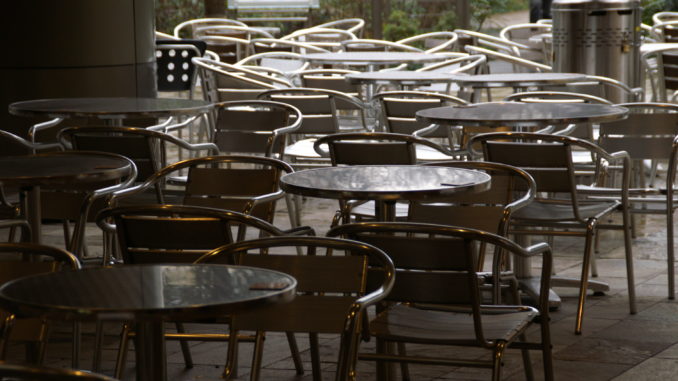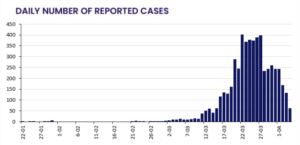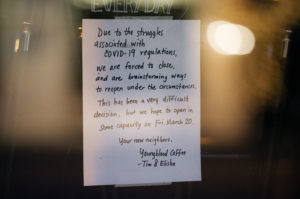
In the early stages of the outbreak, the Australian government introduced a series of policies to prevent the further spread of COVID-19, including banning non-essential gatherings of more than 500 people from March 16. Australian Prime Minister Scott Morrison announced that in any case, the density of the population must be kept at no more than one person per four square meters. This means that only 25 people are allowed in a room of 100 square meters and a social distance of 1.5 meters must be maintained.
Although the Australian government has limited the number of people gathered, cancelled major events, suspended all international flights and even closed the country’s border, the situation of coronavirus has not been taken seriously by the public. Large Numbers of Australians still gathered on beaches to enjoy the sun.
On March 20, a photo of a crowd on Bondi Beach exceeding the outdoor-gathering limit quickly went viral online shortly after the ban was imposed. The beautiful weather and comfortable temperature were the main reasons that attract people to go to the seaside to relax.

Health Minister Greg Hunt said the crowds on one of Australia’s most famous sand belts were ‘unacceptable’. The number of infections across Australia has risen sharply, with a record daily jump in New South Wales.

As a result, the NSW government has ordered the closure of the popular attraction. The Waverley council announced that Bondi Beach, Tamarama Beach and Bronte Beach were all closed on Saturday, March 21, in response to the 500-person gathering limit.
Australia has shut down most non-essential services because of the rapid increase in coronavirus cases in the country. The services sector suffered the most during this special period.
The Effects of Beach Closures on Surrounding Services
The service industry, also known as the service sector and tertiary sector, refers to the economic segment that gains revenue by providing intangible products and services to enterprises and final customers. Service industry companies are involved in retail, transport, distribution, food services, as well as other service-dominated businesses.
Under the new rules, bars, clubs, gyms and cinemas in Australia were all closed. Other services have also had to change their business plans to accommodate the new social distancing measures. Bondi Beach was closed after beachgoers ignored social distancing orders, posing a huge challenge to the surrounding restaurant industry, particularly in restaurants and coffee shops near beaches. Most of these industries may have to think about delivery and takeout to survive.

The sudden emergence of this virus is the most serious disaster in recent years. According to James, who runs a coffee shop near Bondi Beach, the closures of city and market have left many restaurants with zero revenue.
“At the beginning of my business, the coffee shop was also interrupted due to poor operation,” said James, “but it was emotionally difficult to accept, and there was no financial pressure.”
“This time, the high rent and employees’ salaries are a big cost, which will be hard to bear for several months,” said James.
To make matters worse, James revealed that the beachside coffee shops survive mainly by catering to tourists and beachgoers and that once the Australian government announces the closure of the beach, the coffee shops will see a significant decrease in sales.
“In my coffee shop, consumers are more likely to sit down than taking out. In the first week after the beach closed, sales were down by about 80% to 85%, which was pretty desperate,” said James, “it was tough, especially in the first week. We don’t know how to deal with it.”
However, under this epidemic situation, if effective measures are not taken to control the number of people gathered indoors or outdoors, the situation of infection will become increasingly serious, and the economic losses will become greater and greater.
“We should be less together,” said James, “unfortunately, our business is bringing people together.”
While many restaurants and cafes near the beach remain open for the time being, many have changed the way they offer their services. The rules allowed some coffee shops to provide takeaway coffee as a source of income to make ends meet while enforcing strict social distancing measures.
“We are willing to cooperate with the government in fighting the coronavirus,” said James, “this is not only a challenge but also an opportunity to try something new.”
“In order to make consumers enjoy the same service while ensuring safety, our coffee shop has tried the combination of online ordering and offline delivery for the first time,” he explained.
In addition, James described how social media was used to keep in touch with consumers during the outbreak to maintain their interest and demand for coffee.
“We have accounts on Facebook and Instagram where we share photos and videos every day,” said James, “although the turnover did not increase significantly, I gained a lot of fans.”
How to Response
Bondi Beach and two other beaches in Sydney’s eastern suburbs were reopened on 28 April as coronavirus curves flattened. Beaches are closed for the weekend and sunbathing is still banned.
“This is good news for the service industry around Bondi Beach,” said James.
However, it is still in the midst of a pandemic. It is the responsibility of every shop that reopens to provide basic disinfection and protection, especially in high-traffic areas like the beach.
“In addition to the delivery service, we are considering a time-sharing booking to control the number of people in the store,” said James, “during this special period, this will help maintain the relationship with the guests and increase mutual trust.”
Beaches in Sydney have been closed after large numbers of people ignored suggestions of social distancing. The closure of the beach has led to a decline in tourists and beachgoers, further affecting the sales of restaurants around the beach.
The beaches have reopened now. For most service industry operators, the outbreak has forced them to rethink their positioning and adjust their products by combining the current environment with the possible economic trend in the future.




Be the first to comment